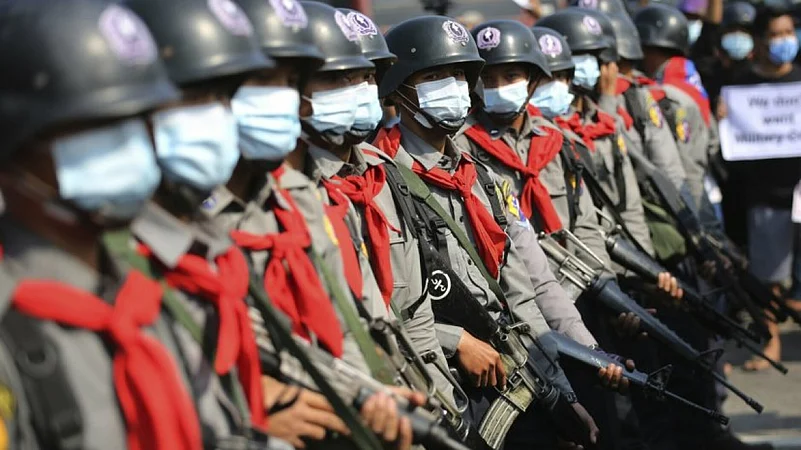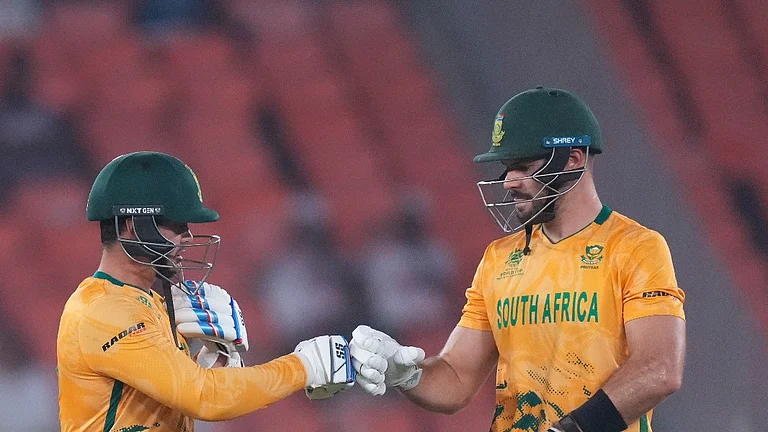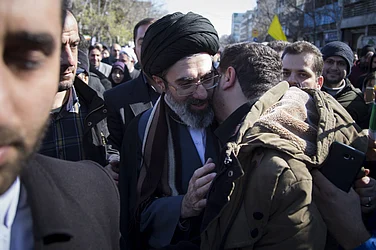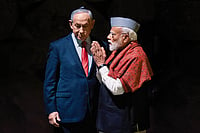February 1 marks one year since democracy died in neighbouring Myanmar. On the first day of February last year, when the country’s new Parliament was to meet and freshly elected lawmakers to take the oath, the military stepped in with guns, tanks and barricades on the streets. This was at a time when the country had been brought to the brink by the covid-19 pandemic.
Unwilling to accept the people’s verdict, which gave Aung San Suu Kyi’s National League for Democracy (NLD) a clean sweep in the November 2020 parliamentary elections, the army detained party leaders including Nobel laureate Aung San Suu Kyi, President Win Myint, other top political leaders, writers and activists. Army commander General Ming Aung Hlaing took charge, declaring a year-long emergency, and putting democracy on hold—all on trumped-up charges of election fraud.
The show of force by the military did not deter ordinary citizens from defying orders. What the junta did not expect was people’s spontaneous outburst of anger and their courage in the face of a brutal crackdown. According to reports from the ground, some 1,500 people have been killed by the security forces, around 11,000 detained an unknown number tortured and disappeared and 300,000 displaced as villages were burnt down by the military to punish those who sided with the NLD or resisted ethnic groups that had long resisted the military and now joined hands with the pro-democracy movement.
For India, Myanmar poses a major challenge to balance its security interests against its democratic credentials. As a major democracy, India does not wish to be seen to be siding with a military dictatorship. Yet as an immediate neighbour sharing a 1,643-kilometers border across its sensitive northeastern states, New Delhi does not have the luxury of cutting off all ties with Myanmar. In the past, the Myanmar army had helped Indian security forces in breaking up camps of northeastern militant outfits. Indian diplomats have to perform a delicate balancing act. While calling for the restoration of democracy and freeing political prisoners, it also continues to maintain a line to the administration. Foreign secretary Harsh Shringla visited Myanmar in December last year, the first since the coup. He met with the military leaders but his request for a meeting with Aung San See Kyi was turned down. India has no choice but to continue its engagement with the top military rulers and quietly push the leadership towards gradually lifting restrictions on freedom. China is already spread across Myanmar and bats for the junta in the United Nations Security Council. Turning its back on the military would mean allowing China full rein in India’s backyard.
The Shans, Karens, Kachins and numerous tribal groups living in far-flung outlying areas of Myanmar had been fighting the Myanmar army for decades. The military have only a tenuous hold of these areas and had fought long to bring them to book. The majority of the Burmans had stood by the army in the past. But now with the security forces pointing their guns at ordinary citizens, there has been newfound empathy between the majority community and the separatist groups operating along with border areas of Myanmar. The army had resorted to airstrikes in many of the frontier provinces in an effort to weaken these armed insurgent groups.
Since the army took over, the economy has been in shambles. The year-long civil disobedience has added to the military’s woes. Doctors and nurses have walked out of government hospitals, public transport is erratic with drivers and staff walking out of their jobs, banking and other financial services are in a similar state. Education has suffered as students and professors aligning with the democracy movement are either in jail or in hiding. Yet the love for freedom, for democracy and hope to live without fear, has led to a stubborn resistance that refuses to give in to the army. Having experienced democracy, and hoping that the landslide victory of Suu Kyi’s party would lead to full restoration of democracy has disappointed the people and made them even more determined to oppose the regime.
Last year’s coup had been roundly condemned by the international community. The world called on the military to immediately release all detained leaders. Yet international condemnation, sanctions on several top army generals, a fresh diktat by the US government to its companies not to do any business in Myanmar that would help the junta, and massive protests by citizens, the army has not relented. It has promised to allow election by 2023, but few expect the military to keep its word.























